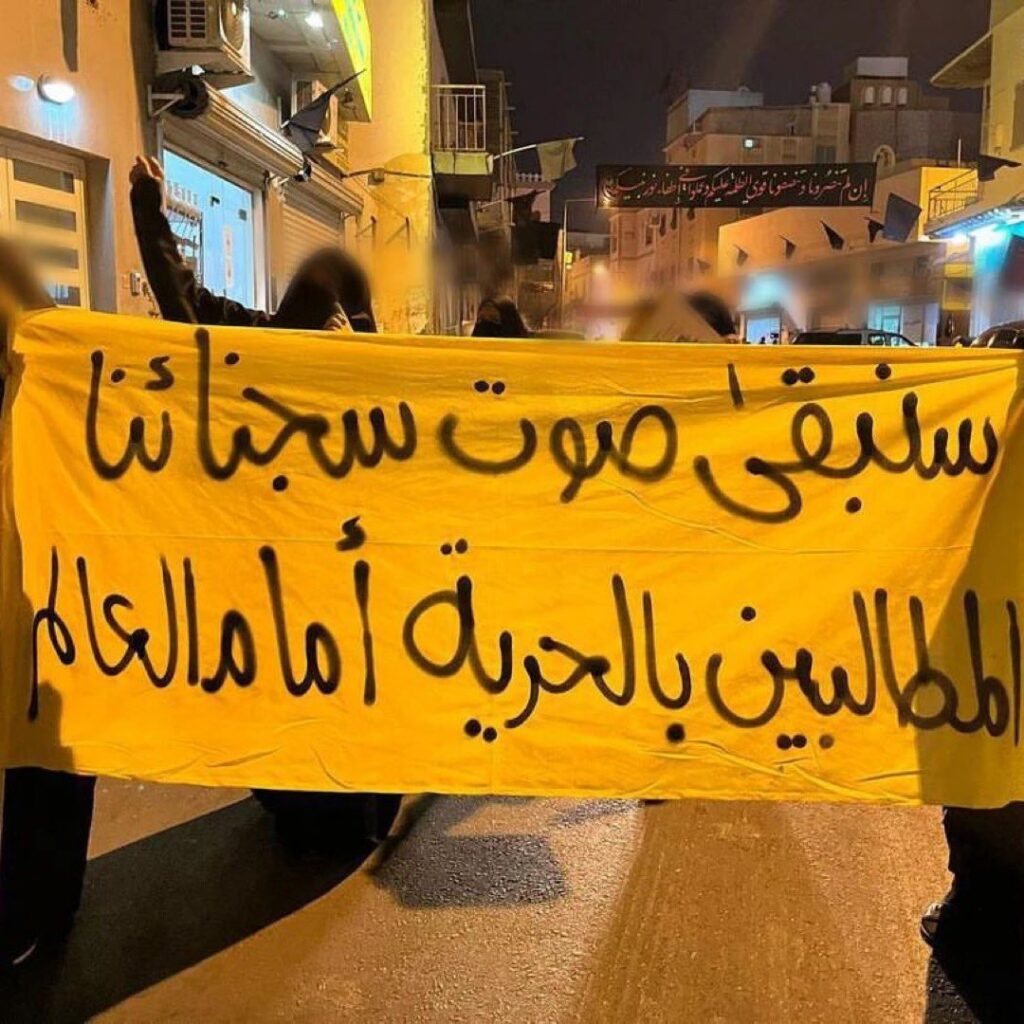Over 500 political prisoners in Bahrain’s Jau Prison have entered the twelfth day of their hunger strike in protest of harsh prison conditions. As the strike continues, more prisoners join the protest, with a further hundred prisoners joining the original 400.
During today’s Friday prayers, senior Shia Cleric Sheikh Mohammad Sanquor, Imam of Bahrain’s largest Shia mosque, Al-Sadiq Mosque, said that “From a humanitarian perspective, we call for the end of the suffering of prisoners and their release” with worshipers chanting in response “We are with you, Oh prisoners!”.
Protests are expected today in Bahrain, amidst opposition groups calling on people to go to the streets in support of prisoners. There has been an outpouring of support and solidarity across Bahrain with multiple small-sized Shia villages, including Bani Jamra, Sanabis, and Karzakan, holding protests and chanting slogans in support of the striking inmates and calling for their release.
In a press briefing on Thursday, the US State Department stated they are “aware of and concerned of the reports of this hunger strike at the Jaw Rehabilitation and Reform Centre.
We have raised human rights issues with Bahraini officials, including as recently as the Secretary’s July 20th meeting with the Bahraini foreign minister, where we also expressed concern about some of these reports.
The US is committed to promoting respect for human rights and fundamental freedoms around the world, and we urge Bahrain to continue to make progress on criminal justice reforms and ensure human rights standards are upheld.
There are reports from prisoners that some inmates have become hyperglycemic and report sugar levels as low as 1.7 while others have reportedly fainted.
In a show of solidarity with the striking prisoners, exiled Bahraini activists staged a 24-hour hunger strike outside the Bahraini Embassy in London and were joined by Brian Dooley, an internationally recognised human rights advisor.
The strike has received widespread international media coverage, including from The Guardian, AFP, and AP.
On Wednesday, 16 August, 10 leading political activists, 7 of whom were convicted after the 2011 pro-democracy protests, including Abdulwahab Hussain, refused to take their meals for three days in solidarity with the prisoners.
Striking prisoners have faced reprisals, including Ahmed Jaafar, who undertook a further protest in the prisoner yard and was pepper-sprayed, shackled, and placed in solitary confinement, where he currently remains.
On Monday, 12 August, the Ombudsman (Interior Ministry oversight body) issued a highly misleading statement which legitimises degrading policies within Jau Prison and fails to address the concerns raised by the striking inmates. The Ombudsman receives UK taxpayer-funded support through the Gulf Strategy Fund, which was doubled to Bahrain in 2022.
A group of NGOs wrote to the US government raising concerns about Mr Abdulhadi Al-Khawaja, citing an independent doctor who warned that Mr Al-Khawaja “may not survive for more than a few days given his deteriorating condition, chronic health issues, and the potential for sudden, fatal cardiac arrest.”
Commenting on the strike, Sayed Ahmed Alwadaei, Advocacy Director at the Bahrain Institute for Rights and Democracy (BIRD) stated:
“As the hunger strike continues to gain momentum, both inside and outside the prison, it is imperative for Bahraini authorities to immediately meet these demands before this leads to a tragedy.
Instead of praising Bahrain for fake reforms, the US, UK, and EU governments must pressure Bahrain to meet the prisoners’ demands and release all political prisoners.”




